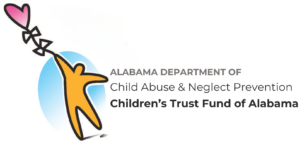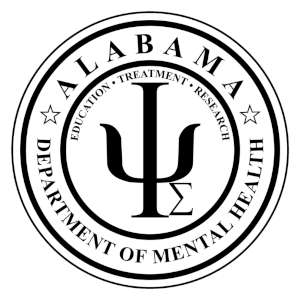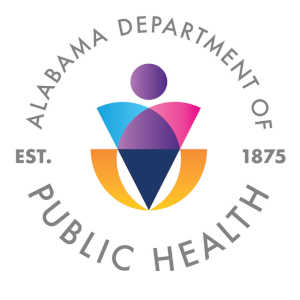 Before the pandemic locked us in our homes, there was an epidemic ravaging American high schools E-cigarettes and vaping. E-cigarette use ballooned with trendy new products like Juul vape pens, and US legislators struggled to get teenage nicotine use under control. The world after quarantine will undoubtedly be different, and consumer behavior will shift to new products, but it will be similar to the pre-COVID world.
Before the pandemic locked us in our homes, there was an epidemic ravaging American high schools E-cigarettes and vaping. E-cigarette use ballooned with trendy new products like Juul vape pens, and US legislators struggled to get teenage nicotine use under control. The world after quarantine will undoubtedly be different, and consumer behavior will shift to new products, but it will be similar to the pre-COVID world.
Thus, the question has to be asked: when schools return to in-person lecture and the peer-to-peer spread of nicotine products resumes, will Juul reign as king again or will another product steal the headlines? Where should our prevention efforts be aimed?
The rise and fall of Juul
Juul’s e-cigarette brand saw a meteoric rise in the years preceding the coronavirus pandemic. The USB flash drive-like device appealed to younger consumers because it was new, sleek, and discrete and offered a variety of flavors including cucumber, mango, and fruit.
The US had a new nicotine product that appealed to teenagers, was easy to hide, and went largely unregulated for several years. The results were obvious: high school students who reported being current e-cigarette users increased 78 percent between 2017 and 2018.
The timeline for Juul’s rise to market domination is a storied one. From the Juul launch party in June 2015 to the first substantial investigation efforts by the US Food and Drug Administration (FDA) in April 2018, we saw a product grossly marketed to teenagers and a government slow to intervene. Vaping became a culture phenomenon fueled by teenagers and social media.
However, by November 2019, Juul faced new legal trouble and pressure from the US government. Juul eliminated their remaining flavored pods, now only selling menthol and tobacco flavors. The company has greatly dropped in market value, and remote schooling has likely caused a significant reduction in the underground e-cigarette markets in high schools.
Juul rhymes with IQOS
As the Truth Initiative has reported, the tobacco industry will “rebrand its public image and position itself as working alongside public health, all the while continuing to expand its bottom line by continuing to market deadly combustible tobacco, expanding nicotine addiction and aggressively growing its market base among youth and young adults.” 
In rides IQOS, a new electronic tobacco product that is neither a vapor based e-cigarette or combustible paper product. IQOS is produced by some of the same names that led Juul’s historic rise in popularity. Philip Morris International (PMI) began the sale of IQOS in US markets in October 2019 at a mall in Atlanta, Georgia. PMI pledges to continue its rollout of IQOS to more stores across the country, while also working with the FDA on a responsible delivery of the product—a strategy in line with Truth Initiative’s report, rebrand through cooperation.
Unlike Juul e-cigarettes, IQOS is a heat-not-burn device that, as the name suggests, heats tobacco sticks rather than burning them. In theory, because IQOS “heats tobacco and does not burn it, it significantly reduces the production of harmful and potentially harmful chemicals compared to cigarette smoke.” This approach has earned IQOS a unique classification as a Modified Risk Tobacco Product (MRTP), only the second product to receive this classification.
While IQOS does not offer any flavored sticks that might entice youth to try the product, it does market itself with an emphasis on its slim, discrete design and alleged lower-risk delivery method, the latter being the same shtick Juul used to bypass the critical eye of legislators.
Here we are again. A trendy electronic tobacco product is beginning its slow introduction to US markets, tiptoeing past the watchful eye of legislators. It is electronic for the techies, sleek for the supervised, and novel for a population group always looking for the next big trend.
Risk versus outcome
It is easy to imagine the next tobacco product that develops a stronghold in American high schools will probably have similar qualities to Juul’s vape pens. None of the products discussed here are safe for consumers, but tobacco is one of those strange products that defies warnings of danger. IQOS is not currently FDA approved, but it has been inspected enough to be marketed and sold. We find ourselves in a
troubling predicament again where a new e-tobacco product isn’t fully investigated, but it is allowed to be sold, albeit to legal smoking-age citizens (like that hindered Juul at all).
 It’s the slow creep, the subtle marketing maneuvers, and the curtailing to big government that makes IQOS
It’s the slow creep, the subtle marketing maneuvers, and the curtailing to big government that makes IQOS
such a big threat. Prevention efforts still need to focus on cigarettes and vape pens, but IQOS might prove
elusive enough to evade detection of lawmakers before it is too late.
If anything, American citizens deserve better protection from such devices. Perhaps legislative changes for how tobacco products are marketed and sold is needed. Even further, more research should go into bringing products like IQOS to market. The Addiction Prevention Coalition will continue to monitor IQOS as it ventures from our neighbor, Georgia, but parents should know now that they will likely hear the IQOS name again in the future.









